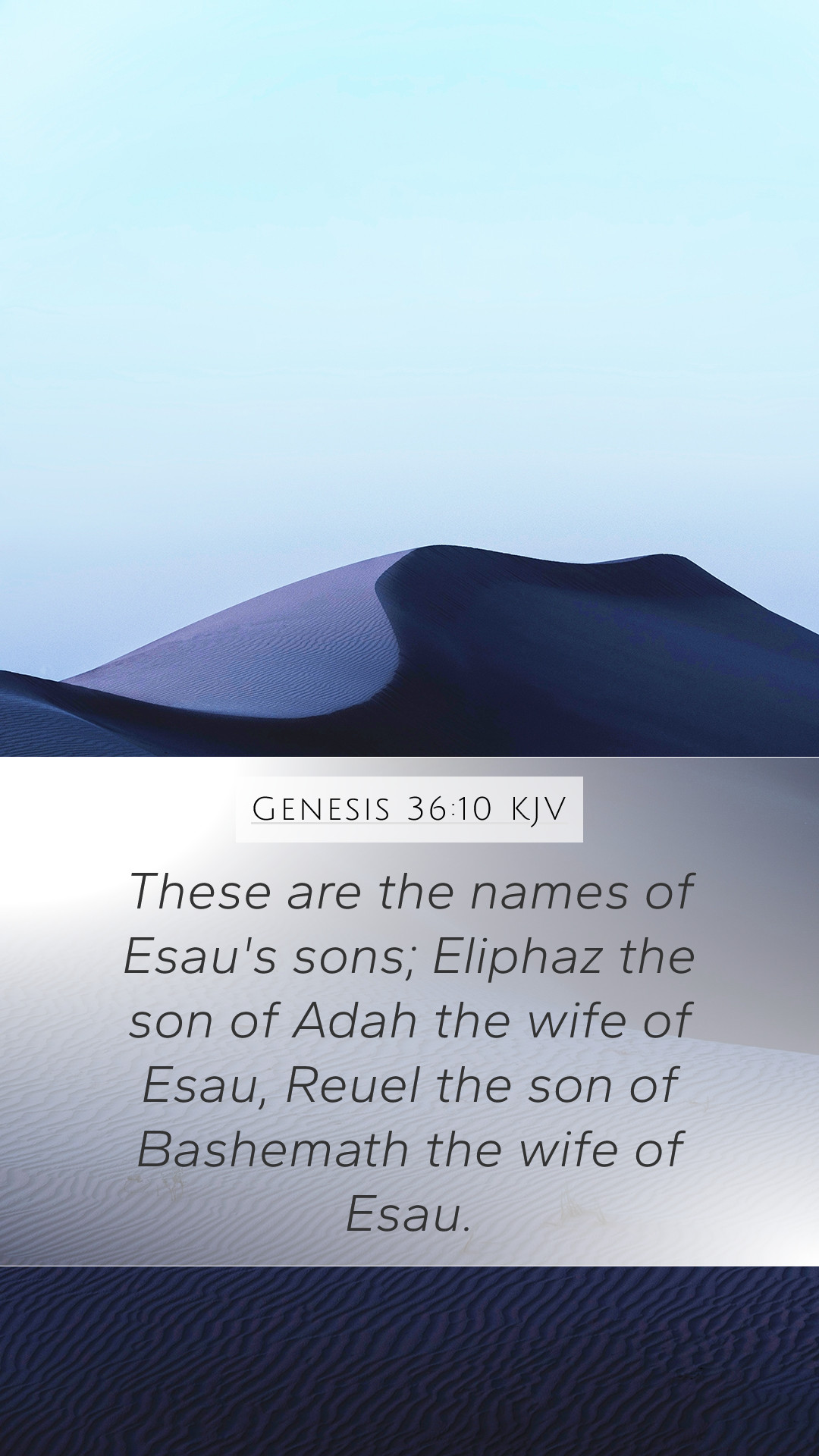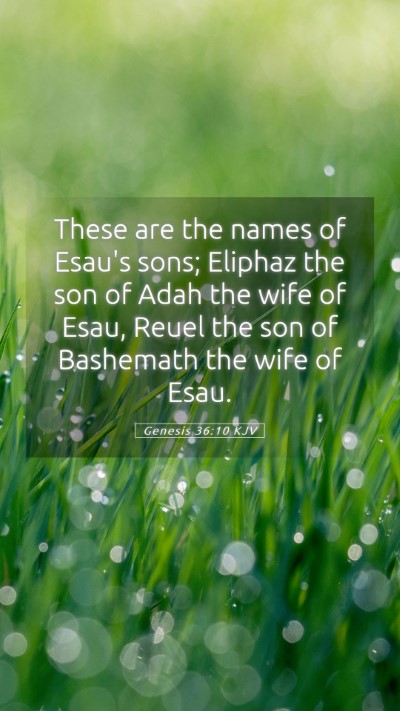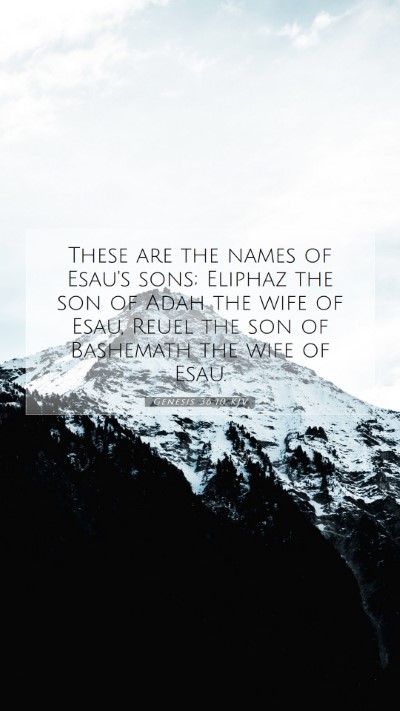Understanding Genesis 36:10
Genesis 36:10 states: "These are the names of Esau's sons: Eliphaz, the son of Adah the wife of Esau; and Reuel, the son of Bashemath the wife of Esau." This verse introduces the descendants of Esau, who is a significant figure in the biblical narrative. The mention of Esau's sons serves not only as a genealogical list but also as a segue into the broader theme of the lineage and legacy of the Edomites.
Bible Verse Meanings and Interpretations
This verse primarily functions in three key areas: genealogy, covenantal themes, and historical context.
1. Genealogical Significance
Genealogies in the Bible serve important purposes. As Matthew Henry notes, genealogical records often validate the heritage of a nation or group. In this case, the mention of Esau’s sons identifies the Edomites, reflecting God’s promise to Abraham that nations would come from him.
2. Esau's Legacy
Esau, being the twin brother of Jacob (who was chosen to inherit the covenant), presents a fascinating contrast. Albert Barnes points out that while Jacob became the nation of Israel, Esau’s lineage leads to the Edomites, who would often be in conflict with Israel. This aspect highlights the fractious nature of family legacies and divine favor.
3. Historical Context
Adam Clarke elaborates on the cultural significance of names in biblical times. The names of Esau's sons serve to establish the historical and cultural identity of the Edomites. Each son may represent different tribal factions that emerged over time, reflecting ancient socio-political structures.
Highlighted Names
- Eliphaz: A name meaning “God is fine gold," suggesting prosperity and richness, often associated with the nobility.
- Reuel: Meaning “friend of God,” indicating a strong spiritual dimension, possibly hinting at deeper theological implications for the Edomite people.
Importance of This Verse in Scripture
Genesis 36:10 is not just a historical record but also serves as an essential marker in understanding the unfolding of scriptural narratives. It connects readers to the larger story of Israel and the fulfillment of God’s promises to Abraham.
Bible Study Insights
For anyone engaged in bible study groups or online bible study, understanding such genealogies can enrich one’s bible study experience. The details found in verses like Genesis 36:10 prompt deeper inquiries into how God’s plan unfolded through various lineages.
Connecting with Other Scriptures
This verse also connects with several other scriptures that deal with the themes of lineage, conflict, and divine promise:
- Genesis 25:19-34 - The birth of Esau and Jacob.
- Malachi 1:2-3 - God’s love for Jacob and disdain for Esau.
- Numbers 20:14-21 - The conflict between Israel and Edom.
Application of This Verse
As with many passages in the Bible, applying Bible verses to daily life can be transformative. Reflecting on the legacy we leave for future generations, whether through familial ties or spiritual inheritance, is vital. Understanding who we are in the context of God's broader plan aids in personal growth and spiritual maturity.
Conclusion
In conclusion, Genesis 36:10 provides profound insights not only into the lineage of Esau but also into God’s overarching narrative of redemption. Through thorough bible study lessons and bible study materials, believers can appreciate the intricacies of each verse and its application in both historical and contemporary contexts.


